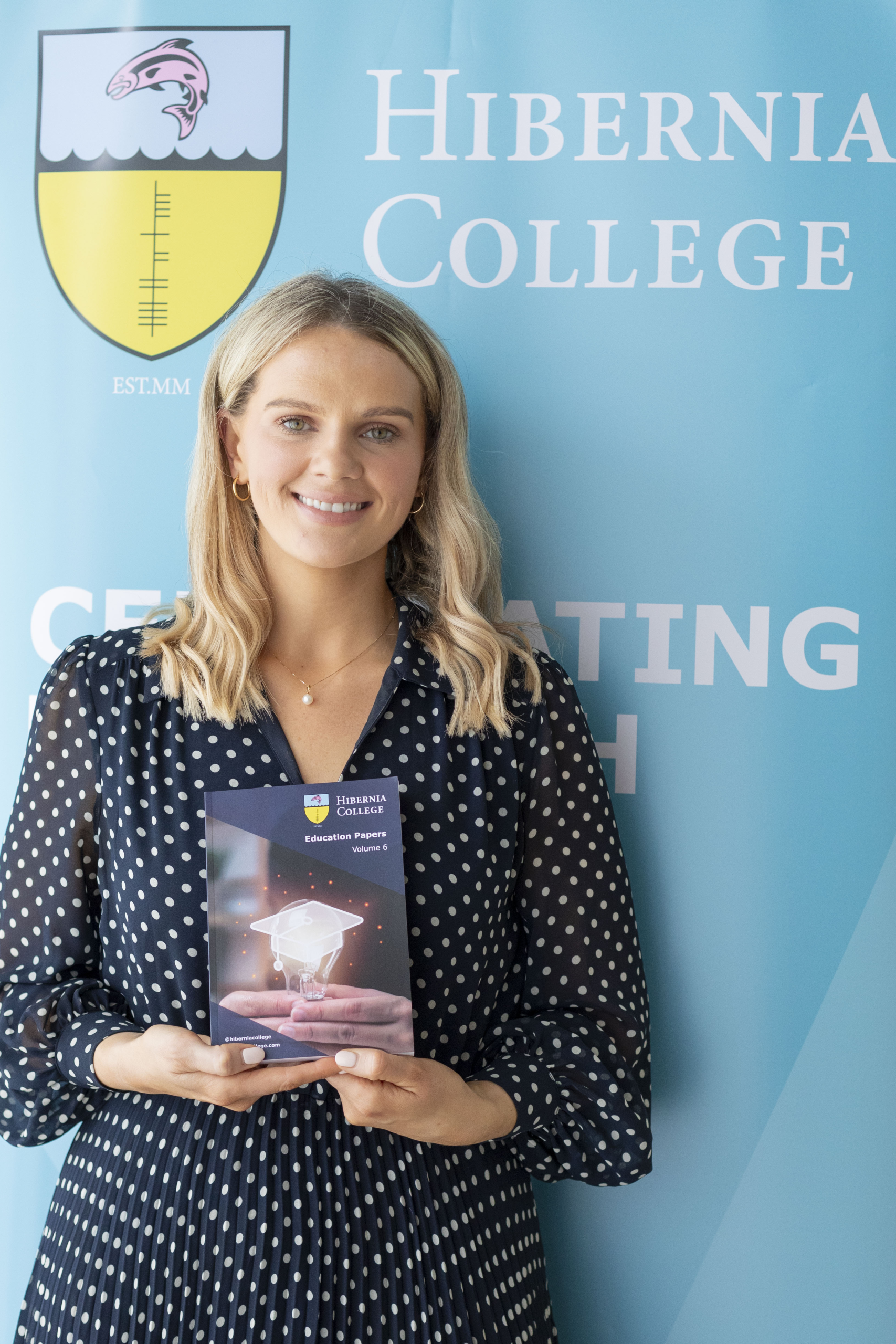
Research profile
Grace O’Donnell
PME in Post-Primary Education
Grace is committed to equipping teachers with effective strategies to engage and motivate post-primary students. Grace’s journey reflects a dedication to academic excellence and a genuine desire to enhance the learning experience for the next generation.
Research Paper Title
An Investigation of Teachers’ Perspectives on Effecting Teaching Strategies Employed by Post-Primary Teachers in DEIS and Non-DEIS Schools to Support Academic Motivation and Engagement
Abstract
This mixed-methods study investigated active teaching methodologies (ATM) employed by teachers to support academic motivation and engagement, while exploring the influence of socioeconomic factors on student motivation and engagement. The research included surveying 29 teachers and two semi-structured interviews. According to the findings, all participants used ATM, which increased student motivation and engagement. However, classroom management issues, particularly in DEIS schools, hindered ATM implementation. It also revealed socioeconomic factors perpetuated educational poverty cycles. Teachers played a critical role in mitigating the impact of socioeconomic factors on students’ academic success. The findings also highlighted the need for adequate training and continuing professional development (CPD) to effectively implement ATM.
Biography
Grace O’Donnell graduated with a Bachelor of Commerce (Hons) specialising in Economics from University College Cork in 2017. Subsequently, Grace completed a master’s in Design and Development of Digital Business (MSc) from University College Cork in 2018. Grace’s international teaching experience in Dubai over three years deepened her passion for education. Graduating with a First-Class Honours in the Professional Master of Education (PME) in Post-Primary Education from Hibernia College in 2023, Grace is looking forward to sharing her interests in business, economics and technology with her students. Grace’s research focus centres on active teaching methodologies. She is committed to equipping teachers with effective strategies to engage and motivate post-primary students. Grace’s journey reflects a dedication to academic excellence and a genuine desire to enhance the learning experience for the next generation.
Research motivation
Can you tell us a bit about your research project?
My research project investigates effective teaching practices used by post-primary teachers in DEIS and non-DEIS schools to support academic motivation and engagement. The purpose of this research is to investigate the factors that influence student engagement and motivation in socioeconomically disadvantaged areas of Ireland. It also investigates how socioeconomic factors like family income, parental education level, race, and gender influence student motivation and engagement. Furthermore, the study investigates pedagogical knowledge that can be used to engage and motivate students in these areas.
What motivated you to undertake this research?
After completing my school placement in two very different schools, I was eager to learn more about what motivates students and how socioeconomic factors influence this. Furthermore, this research is motivated by a desire to better understand and address the challenges that students in socioeconomically disadvantaged areas face. Recognising the importance of socioeconomic factors in student motivation and engagement, the goal was to investigate effective teaching strategies that could mitigate these effects and promote academic success. Additionally, the research aims to provide insights and practical recommendations for teachers to improve their professional practices.
What impact has it had on your practice?
I am currently teaching at the DEIS school where I finished my school placement. The findings of my research study have enabled me to incorporate these into my daily teaching methods. Furthermore, the study emphasised the importance of continuous professional development (CPD) for teachers, particularly collaborative CPD that involves all school staff. This approach enables teachers to learn new things and reflect on their professional practices together. Implementing the study’s findings has the potential to improve teaching methodologies, increase student engagement, and create a supportive learning environment. It has also emphasised the importance of adequate training and resources for teachers to successfully implement new teaching strategies.
How important do you feel research will be in your future practice?
Research will be important in my future practice as a newly qualified teacher because it provides evidence-based teaching strategies and methodologies for students of various abilities. Integrating research into my professional practice enables me to make more informed decisions that benefit student learning and engagement. In addition, engaging in ongoing self-reflection and research-based evaluation of teaching practices helps to ensure that my teaching practices improve continuously.